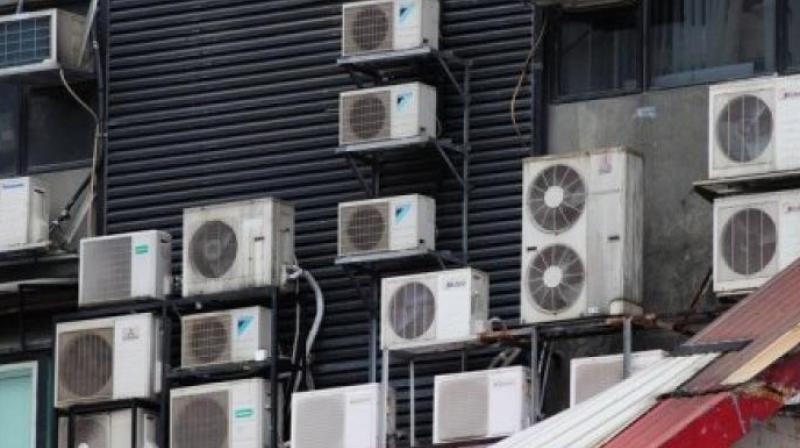So, let's talk green: The hotter it is, the cooler it can get

The air conditioning system has come a long way, from the Egyptian hanging reed curtains with water sprayed on them, to the water powered fan wheels of the Chinese, to aqua ducts circulating within walls in Rome.
From then on, through more technological advances, the modern air conditioner made life comfortable for millions across the planet. It enabled life in ways that could not be imagined before. Along with it also came the negative repercussions, that is now being felt across the planet. Air conditioners guzzle enormous amounts of electricity, which are produced by burning fossil fuels, that cause Co2 emissions that is now recognised as the cause of global warming and the resulting climate change and extreme climate events. The Intergovernmental Panel on Climate Change predicts that by 2100, the need for electricity to power cooling will have surged to more than 30 times what it was in 2000. All this has led to the quest for air conditioning systems that are much more energy efficient. Here is a rundown of all that is happening in this space.
The world of solar thermal, where air-conditioning units rely in part on dark glass tubes that turn sunlight into cooling power, is gaining popularity. These aren't the normal solar panels that we see on roof tops that convert sunlight to electricity. Instead, these glass tubes harness heat from the sun to chill buildings through a magical thermodynamic act. Research groups are showing off their systems at a growing number of hotels, shopping centres and other buildings across the world. Today, there are some 1,200 installations - more than 10 times the total from a decade ago. Companies that produce solar-thermal chillers say that they use 30-90% less electricity than the conventional air conditioners that operate in most buildings. And researchers are working to make the systems more efficient and cheaper to build. In a world that 100 million conventional air conditioners, which rely on compressors powered by electricity, the solar-thermal technology is expensive, typically costing about five times more than conventional ones. Research continues and more technologies are being experimented as we speak.
A group led by Stephen White at the Commonwealth Scientific and Industrial Research Organisation (CSIRO) in Newcastle, Australia, has developed a desiccant-wheel system that since June 2016 has been cooling a shopping centre in Ballarat, Victoria. First, ambient air passes through a slowly rotating wheel containing a material that adsorbs moisture, leaving the air hot and dry. This dry air moves into a chamber where it causes water to evaporate, thereby lowering the temperature. The chilled, moist air is used to cool air from the building that runs through a separate conduit. That moist air is then expelled outside, and solar heat is used to dry the moisture-adsorbing material in the wheel.
Another approach is to create a hybrid: a conventional electrical compression machine that uses heat from the Sun to help the energy-guzzling compressor. Ecoline's air-conditioning system at Hotel Star Sapphire is an example. The company has installed more than 1,000 air-conditioning units in 6 countries and, in mid-2018, will be air conditioning a dormitory at Singapore's Nanyang Technological University. In side-by-side tests, Ecoline says, its air conditioner delivered 35% energy savings compared with a standard high-efficiency air conditioner. The hybrid systems cost 15% more to install but are cheaper to run and recoup the extra expense in 2 years, based on electricity prices in Singapore, says Chia.
As we all brace ourselves for a predictably hotter than normal summer, we are all going to use more air conditioning in our homes, and offices. While we indulge in this necessity, can we also support these new technologies, by implementing them in our commercial complexes that are huge consumers of air.

